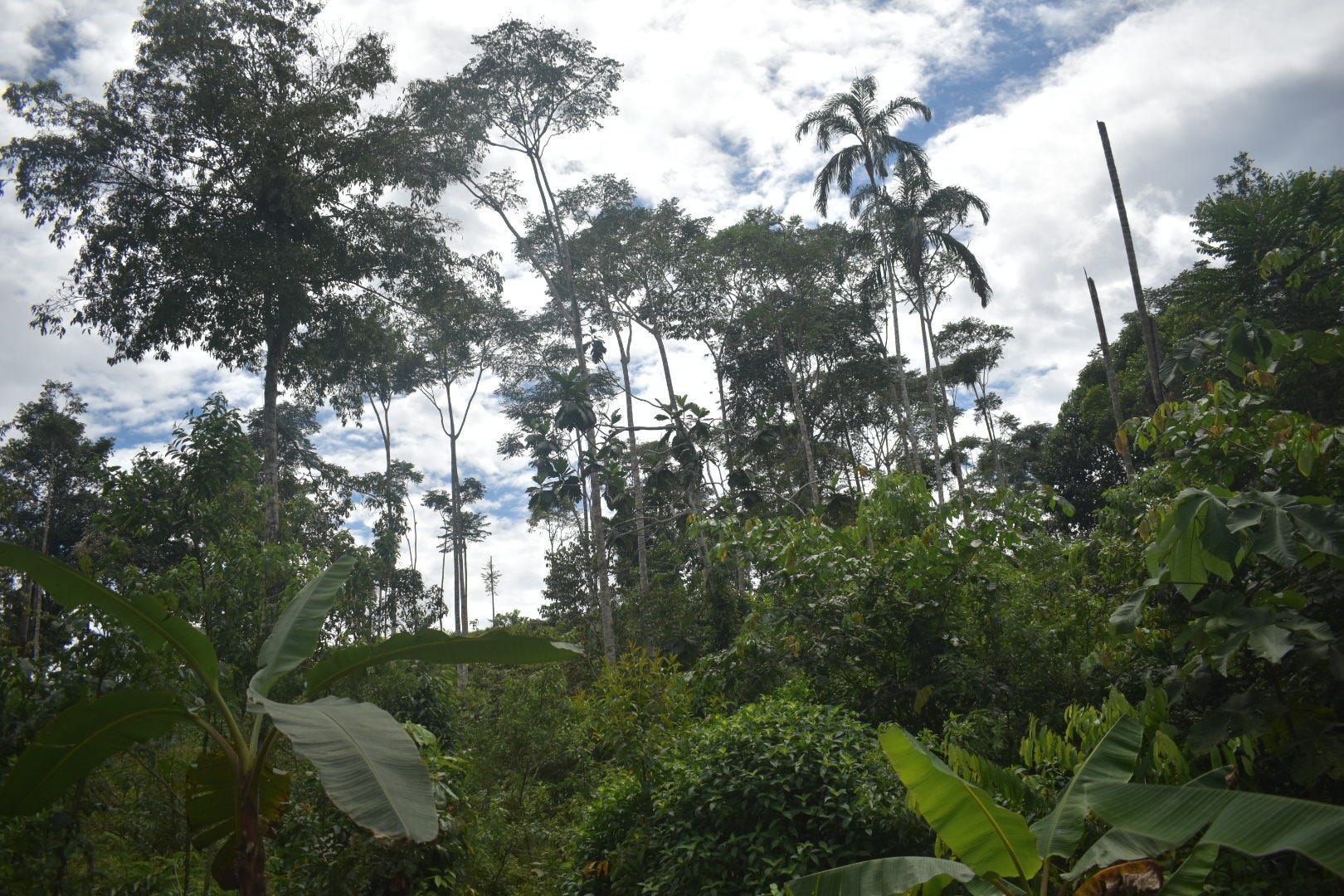On Luddites, the Nasa people, and the power of resistance
A struggle between indigenous land-defenders and a Canadian oil company in Colombia has tones of another historical struggle against exploitation
The Luddites are a lesson in how history is written by the victors. You’re probably familiar with the popular telling of their tale — that they were anti-technology reactionaries who opposed “progress” and “industry” who sabotaged machinery and factories.
It’s a story that is often still told, particularly by billionaires and international conglomerates, but also by media companies. The only problem with the story as it is generally understood in popular culture is that it isn’t true. The Luddite movement, which was led by 19th century weavers and tailors, weren’t conservatives bent simply on smashing what they didn’t understand. They were a well-organized and incredibly creative and adaptive guerilla labor movement that didn’t oppose technology at all.
What they opposed was the fact that vast factories, run by wealthy capitalists who knew nothing about weaving, nor cared about quality, were going to kneecap hundreds of thousands union-workers: forcing them into poverty wages and destroying their independence.
Early in the Luddite movement, they advocated for Parliamentary regulations that would protect their wages and prevent exploitation. They were denied. So they founded a movement based on the legend of Robin Hood that fought for workers’ rights.
Their movement was doomed, however. Industrialists had the full weight of the State, capital, and the industrial revolution itself on their side. “Sabotage” was soon declared a capital offense. Show trials were organized in which dozens of labor activists were executed.
An authoritarian state crushed the movement and the propaganda of the victors became history. Those who opposed “progress” were stamped into the margins of history.
And the story of the Luddites is still used to delegitimize social movements defending lands and human rights today. I’ve been thinking a lot about the story of the Luddites lately as I speak with indigenous Nasa people in Putumayo, Colombia.
Communities here are trying to prevent Canadian oil company Gran Tierra Energy from encroaching on and damaging their lands. The company, promising roads, schools, and jobs, claims that anyone who opposes their plans to pillage indigenous lands stands against “development” and “progress”.
The suggestion, of course, is that the Nasa people are backwards savages scared of change and technology — like the fictional version of the Luddites.
“The Nasa people are children of water,” the governor of one reservation told PWS. “In our stories, we were born from water, the source of all life. Gran Tierra promises us schools and jobs, but we have heard these promises before,” he continued.
“What does a road mean when we can no longer drink from the rivers on our lands?”
Also like the Luddites, the Nasa people have often resisted multinational companies using direct actions, blockades, strikes, and even clashes with state police forces. They are no strangers to entities trying to steal their lands: first the Spanish conquistadors, then the Colombian state, armed actors during and after Colombia’s half-century civil war, and now multinational companies of all stripes, from mining to petroleum to cane sugar and palm oil producers.
“For centuries we have resisted these efforts,” said Juan-Carlos, the governor of a small reservation near Puerto Asis, in the department of Putumayo. “They kill our leaders,” he said, referring to armed groups who have supported the development and profits offered by international companies like Gran Tierra in the past, “but always new leaders are born. The struggle continues.”
Putumayo, a department on the Ecuadorian border, is a violent place. Armed groups clash with one another and the state for territory and control over smuggling trails in the borderlands. A skirmish on the Ecuadorian side of the border a few days ago left more than a dozen people dead, including police officers.
Putumayo is also the largest coca-producing region in Colombia, which is the largest cocaine producer in the world. Rebel groups like the National Liberation Army (ELN) and FARC dissidents clash regularly with hybrid criminal/paramilitary groups like “the Commandos of the Borderlands.”
Civil society and indigenous communities like the Nasa people, are often caught in the crossfire. Companies that do business in regions of the country like Putumayo know what they are getting into. Part of the cost of doing business is paying the non-state armed groups extortion payments.
Canadian mining and Petroleum companies often find ways to disguise, or hide the payments, but “they’re simply a cost of doing business in conflict regions,” Elizabeth Dickenson, senior analyst in Colombia for International Crisis Group, told PWS last year.
This often creates an incentive for armed groups to impose these projects on local communities, by violence if necessary. Colombia is the most dangerous country in the world for land-defenders. In the last ten years, 441 have been killed, according to Global Witness.
Juan-Carlos knows that opposing Gran Tierra’s oil projects could come with a steep price for his community. “But what choice do we have?” he says. “This land isn’t mine. It belongs to my children, and their children. I am just a guardian, a custodian if you prefer.”
He speaks often of “disharmony”. “The community is in disharmony,” he says, “some of the young people believe the promises of the oil company. They haven’t seen how we have heard these empty promises before as part of other projects.”
“They want to put our land in disharmony as well,” he says. “They want to poison our minds as well as our territories.”
Meanwhile, in public presentations in Puerto Asis, the urban town nearby, Gran Tierra sponsors events for “clean energy”. They run slick “fact or fiction” social media accounts that “debunk” supposedly false claims from the community about the potential impacts of oil extraction projects. And they hold open meetings with townspeople where communities like Juan-Carlos’s are described as opposing “progress”.
The Nasa are portrayed as the Luddites of old. Two communities that neither opposed nor prevented “progress”. The Luddites, and the Nasa, actively resisted exploitation of the many by the few.
Technology isn’t the problem; rather the issue is with how it is being used. Technology is a powerful tool. It can save millions through disease prevention and healthcare, or it can kill millions in an instant, leaving behind only mushroom clouds.
If demanding that immense power be used responsibly makes me a Luddite, well, after a week here in the jungle borderlands talking to the incredibly brave Nasa people, I’m ok with that.
We are currently in a subscription drive! Please consider helping us bring you the independent journalism PWS has become known for! We have plans that start at just $5/month.
The Big Headlines in LATAM
In Colombia, FARC dissident group Frente 33, battered by ELN guerrillas, has agreed to disarm and surrender to the government. The deal, which Colombia’s presidential website refers to as the ‘Catatumbo Agreement’ states that “the installation of a Temporary Location Zone (ZUT by its Spanish initials) will be created outside of Tibú” for the purpose of disarmament of fighters.
Frente 33 has been decimated by fighting with the ELN in recent months.
El Salvador’s vice-president Félix Ulloa, in a wide-ranging interview with local media on May 6, detailed plans to offer the country as an international ‘prison-for-rent’ to any country interested.
The position not only abdicates El Salvador of any responsibility of due process or confirming that a detainee has committed a crime, it also contradicts legal claims by the U.S. President Donald Trump that the United States no longer has jurisdiction over the more than 300 prisoners deported from the country that are now held at Salvador prison CECOT.
Colombia this week officially applied for membership with BRICS bank, citing Trump’s trade policies as a principal reason. The country has long been the US’s closest ally in Latin America, but is increasingly moving towards Asian countries, particularly China, for economic relationships.
A mayor arrested in Jalisco illustrates the deep levels of collusion between state and criminal structures in Mexico. An ongoing investigation into an alleged ‘death camp’ has led to charges against both local police and politicians, who were working with the New Generation Jalisco Cartel as part of a scheme to recruit young people.
And of course, there’s a new pope, which has been a huge deal for headlines in LATAM! haha.
The Ship’s Log
Joshua is in the jungles of Putumayo in southern Colombia as part of a project documenting the struggle of the indigenous Nasa people against Canadian Petroleum company Gran Tierra Energy. As part of that, he has been visiting ancestral reservations and communities and listening to their stories. It’s been fascinating.
Daniela is back in Colombia (temporarily)! Although she has plans to return soon to Mexico for a project for CNN, she is also doing some freelancing here as she works out visa issues. We managed to have a coffee together in Bogota the other day!
Spanish Word of the Week
Tirar la casa por la ventana - Taken literally, this phrase would mean “Throw the house out the window” but the expression is used to describe when a lot of money is spent to throw a celebration.
The expression dates back to 1763 when the King of Spain, Carlos III, organized a lottery to raise money for the state. If someone was lucky enough to win the grand prize, they’d have enough money that they could (if they so desired) throw all their old furniture out of the window and buy totally new replacements! In other words, they had the money to make an unrestrained purchase.
One day at PWS, we hope to earn enough to tirar la casa por la ventana
Speaking of which, if you haven’t taken out a paid subscription, please consider doing so. It’s just $5/month! It might not seem like much, but it allows us to keep bringing you the indie journalism and the stories the big guys miss!
And if you have, thank you.
Hasta pronto, piratas!



